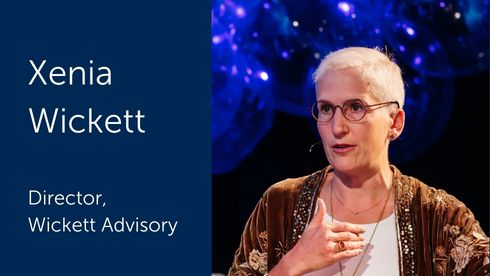The Energy Agenda
Future of Oil and Gas: Insights from Dr. Amrita Sen
With ONS 2024 just months away, anticipation is building around the event's discussions on the future of the oil and gas industry. In the new episode of ONS Energy Talks, Dr. Amrita Sen, founder and director of research at Energy Aspects, looks into the crystal ball.

This interview is done by ONS and summarised with help from ChatGPT.
In this article you can read about:
- The Demand Landscape
- Industry Adaption and Controversy
- Alternatives and Energy Transition
- Impact of Global politics
- Local Energy Production and Self-Sufficiency

The Demand Landscape
Dr. Amrita Sen emphasized the significant role that oil and gas continue to play in global energy consumption. Despite the rise of renewable energy sources, fossil fuels still account for over 80% of primary energy demand.
"The reality is that as a percentage, everything is growing. Obviously, renewables grow the fastest by far, but oil and gas aren't going away," said Sen.
Industry Adaptation and Controversy
According to Dr. Sen, the controversy surrounding oil and gas has somewhat calmed since its peak pre-pandemic. The industry has made strides in adapting to climate goals, integrating solutions like carbon capture and circular economies.
"The Middle East, holding vast reserves, is increasingly taking a proactive role in the global energy debate, aiming to balance oil and gas production with cleaner, greener practices," she noted.
Alternatives and Energy Transition
The transition to alternative energy sources is multifaceted. While electric vehicles (EVs) are a significant focus, other uses of oil in industry and logistics remain crucial. Dr. Sen pointed out that even with a growing number of EVs, gasoline demand has not decreased as expected in countries like China, and also in Europe.
"Gasoline demand is actually stickier than we thought. Even in places with high EV adoption, like Norway, oil demand remains flat," she explained.
Impact of Global Politics
The upcoming 2024 elections, particularly in the US, pose significant uncertainties for the energy sector. Changes in administration could alter policies on LNG exports and clean energy initiatives.
"The repercussions of who comes to power in the US could be massive. A shift in policy could affect global energy supplies and investments," warned Sen.
The geopolitical landscape, including tensions in the Middle East and the Russia-Ukraine conflict, further complicates the outlook.
Local Energy Production and Self-Sufficiency
As global energy markets face chaos and unpredictability, Dr. Sen noted a trend towards localization of energy production.
"We're seeing more countries push for self-sufficiency. While this addresses some immediate issues, it also raises concerns about trade conflicts and inward-looking policies," she said.
A clear, consistent regulatory framework is essential for supporting green energy investments and ensuring a smooth transition.
Looking Ahead to ONS 2024
The discussions at ONS 2024 will undoubtedly delve deeper into these topics, exploring how the industry can navigate the energy trilemma—balancing affordability, reliability, and sustainability.
"We need to be realistic and inclusive in our approach to energy transition. Imposing Western methods on emerging markets without considering their unique needs won't work," stressed Sen.
You will hear more from Dr. Sen at ONS 2024 26-29th of August in Stavanger, Norway.
To better prepare, explore our podcasts and our Energy Agenda Report.

State of the world 2026: Leadership when outcomes widen
post

Apply for ONS Innovation Awards
post


